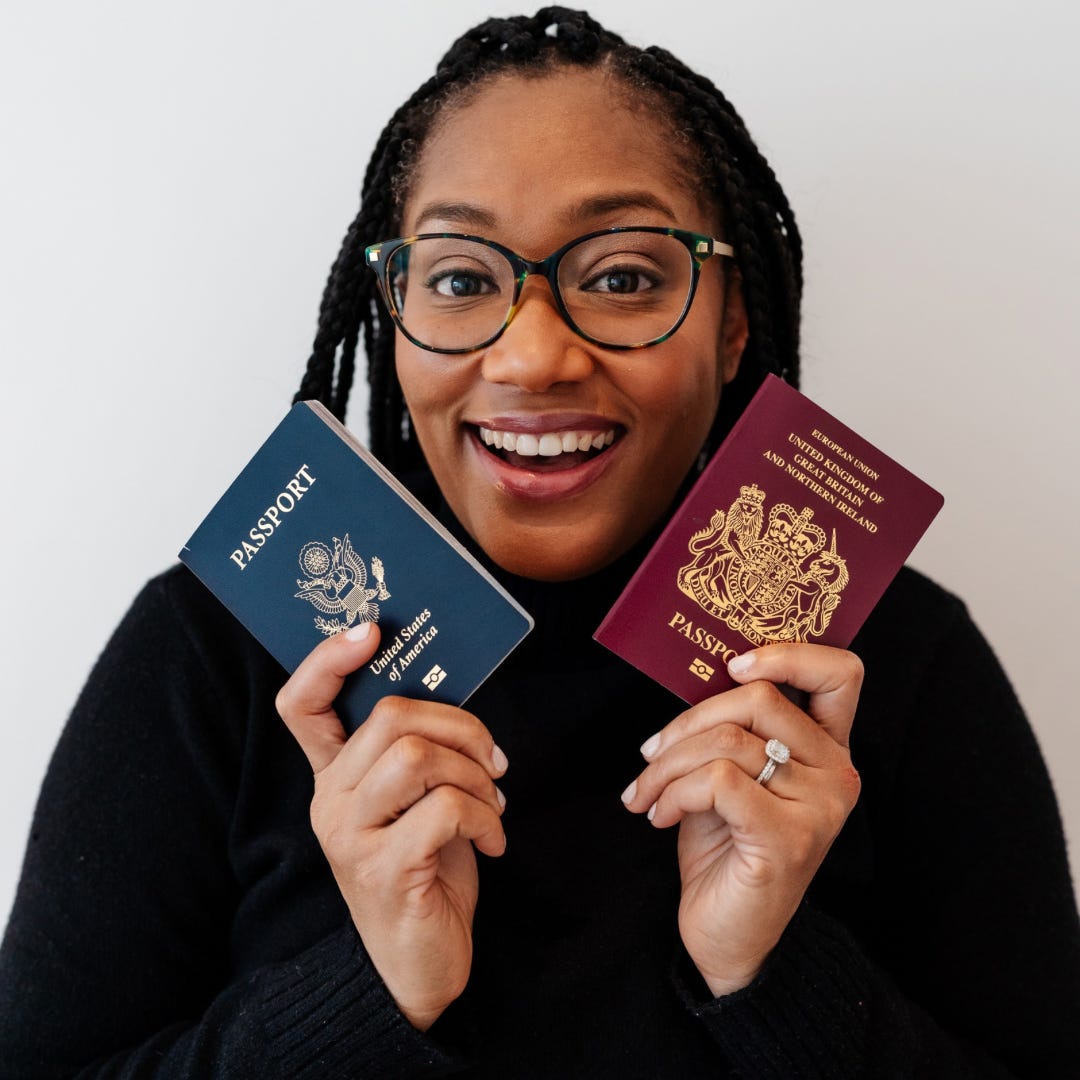Understanding Visas, Residency, and Citizenship
A Real Talk from Someone Who's Done It All
Let me tell you about the moment I realized I needed to get serious about visas. There I was, standing at New Jersey immigration after a three-week trip to the UK, where I'd been visiting the man who would become my husband. The immigration officer looked at my passport and said something that changed everything: "You might want to think about getting a UK visa - you're spending more time there than here."
Talk about a wake-up call.
Like many of you, I started with what seemed easiest—a UK tourist visa. Six months, straightforward application, no problem. But here's what no one tells you: Six months feels like nothing when you're building a life (and a relationship). We ended up renewing it.
Then came the plot twist that taught me everything about immigration systems: my first marriage visa was declined. Yes, declined! There I was, engaged and ready to start our life together, and suddenly... roadblock. It finally took £5,000, a lawyer, and a missed Beyoncé concert (the sacrifices) to get approved. And even then, I couldn't work on that first visa.
Let me break this down for you, family to family:
Visas: Your First Step
Think of these as your "get to know you" cards. They're temporary, specific, and usually pretty straightforward. But here's what I wish someone had told me: they're just the beginning.
Residency: Your Middle Ground (With a Tax Talk)
Let's talk about something that surprised me during our global moves - tax implications of residency. This isn't just about where you live; it's about where you're considered a tax resident.
Being a US citizen means I'll always have US tax obligations (yes, even living abroad). But here's where it gets interesting:
Having UK residency means I'm subject to UK tax laws
When we lived in Denmark, I had to navigate their tax system too
Qatar? Tax-free income, but still had to file US taxes
Here's what I wish someone had told me early on: Your residency status can mean you're subject to multiple countries' tax systems at once. The good news? Many countries have tax treaties to prevent double taxation. The not-so-good news? You need to understand these rules before making your move.
Quick reality check from my experience:
Keep good records (you'll thank me later)
Understand tax treaties between countries
Know your reporting obligations
Consider professional help during tax season
Pro tip: I learned this one the hard way - set aside money for taxes in both countries until you understand exactly how the systems work together.
Citizenship: The Full Package
This is the golden ticket - voting rights, passports, the works. But let's be honest: it's a long game. I'm still on this journey myself.
Here's what I've learned through all of this:
Start Earlier Than You Think When that immigration officer stopped me in New Jersey, I wish I'd already understood the system. Don't wait for your wake-up call.
Understand Your Options
Want to stay temporarily? Visa
Planning to live somewhere long-term? Residency
Want to fully commit? Citizenship path
Have a Plan B This isn't about doom and gloom - it's about options. Having residency in multiple countries has given our family choices I never imagined possible.
For our community members wondering about their next steps, here's my advice: start mapping out your options now. Whether you're:
Just starting to dream about life abroad
Actively planning your move
Already navigating these systems
Understanding these differences isn't just about paperwork - it's about creating possibilities for your family.
Ready to dive deeper into your options?
As a premium member, you can join our upcoming chat on Jan 29th with a Tax Expert, where we share real experiences and practical guidance for navigating your family's global journey.
Believe me, that immigration officer in New Jersey actually did me a favor. He started me on a path that would lead to a life I never imagined—one where my girls are growing up as citizens of the world.






